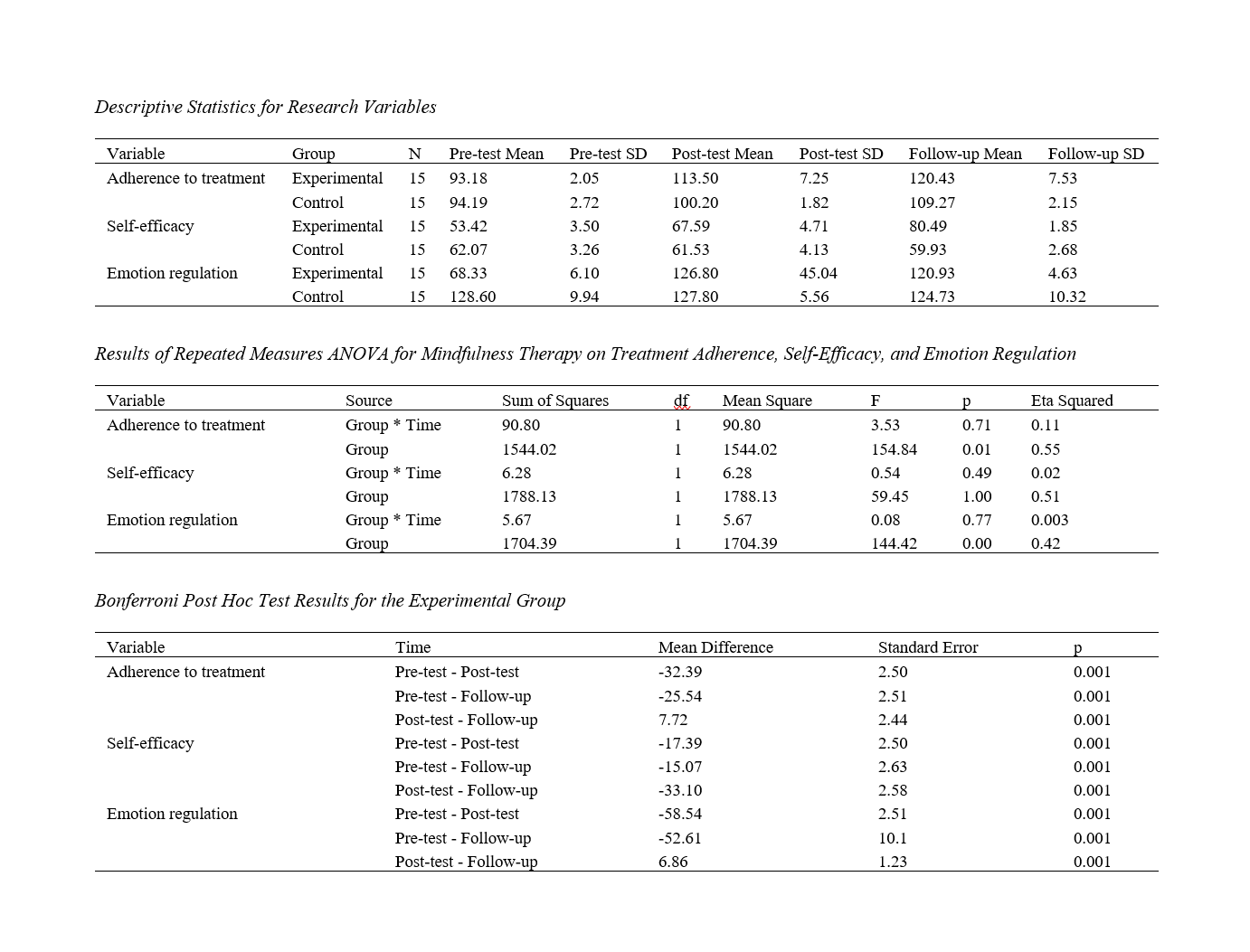The Effect of Mindfulness Therapy on Treatment Adherence, Self-Efficacy, and Emotion Regulation in Patients with Type 2 Diabetes
Keywords:
Mindfulness Therapy, Type 2 Diabetes, Treatment Adherence, Self-Efficacy, Emotion RegulationAbstract
Objective: This study aims to investigate the effect of mindfulness therapy on treatment adherence, self-efficacy, and emotion regulation in patients with type 2 diabetes.
Methods and Materials: This quasi-experimental study utilized a pretest-posttest follow-up design with a control group. Thirty patients with type 2 diabetes, referred to Sari medical centers, were selected through non-random convenience sampling and then randomly assigned to either the experimental group or the control group (15 participants each). Both groups completed measures of treatment adherence (Modanloo, 2013), self-efficacy (Sherer et al., 1982), and emotion dysregulation (Gratz & Roemer, 2004). The experimental group received 90-minute sessions of mindfulness therapy once a week for eight weeks, while the control group did not receive any intervention. Post-intervention assessments were conducted for both groups. Data were analyzed using covariance analysis and SPSS version 22 software.
Findings: The results indicated significant improvements in treatment adherence (F=154.84, p<0.001), self-efficacy (F=59.45, p<0.001), and emotion regulation (F=144.42, p<0.001) in patients with type 2 diabetes following mindfulness therapy.
Conclusion: Mindfulness therapy appears to enhance treatment adherence, self-efficacy, and emotion regulation in patients with type 2 diabetes.
Downloads

Downloads
Additional Files
Published
Submitted
Revised
Accepted
Issue
Section
License
Copyright (c) 2024 Fatemeh Zadehhasan, Mehdi Arab Kalmari, Hossein Rahimlooei Aghdam (Author)

This work is licensed under a Creative Commons Attribution-NonCommercial 4.0 International License.








